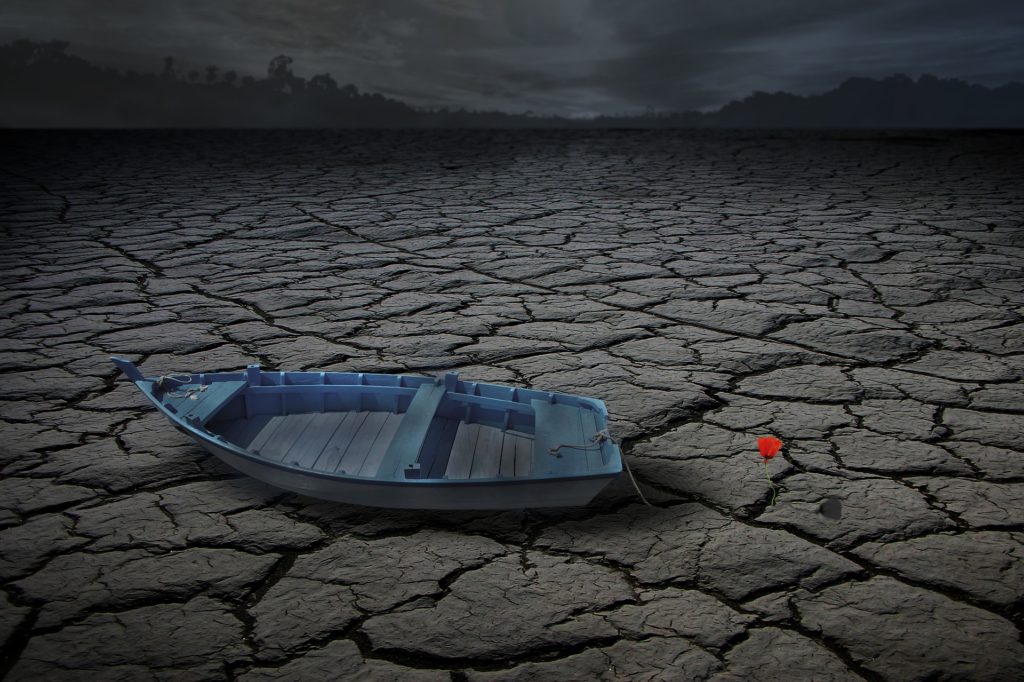
Lack of water
Why is it so hard to understand? The growing population and the increasing use of more scarce available water will be the biggest threat to the survival of mankind!
No rain means no crops. No crops signifies no food. And no food means civil stress.
So I do understand that people are struggling to provide food for their families. It can even go so far that moving becomes the only option! Read this statement made by Tom Middendorp, a Dutch general:
Their only options are to migrate to better places or look for alternative sources of income. And this is exactly what makes them vulnerable to the influence of extremist recruiters and organized crime, who offer them work and food. Joining an armed group is sometimes the only option available for young people around the world. As we now see happening in Somalia, in Sudan and in the Sahel region.These regions can be seen as the true ‘canaries in the coalmine’; they are the warning signs of what is to come in other vulnerable parts of the world.
TOM MIDDENDORP – “THE STATE OF PLAY”, AT THE EUROPEAN PARLIAMENT IN BRUSSELS ON OCTOBER 15, 2019
As a geography teacher, I can never give enough insight into how important the struggle for potable water is going to be. I’m aware of this importance. More people will be on the move and give more pressure on existing regions with sufficient water.
Access to clean and safe water is essential for human health and survival. In many parts of the world, access to clean water is a major challenge due to a variety of factors, including population growth, urbanization, and climate change.
Lack of access to clean water can lead to a range of health problems, including dehydration, malnutrition, and the spread of waterborne diseases such as cholera, typhoid, and diarrhea. These problems disproportionately affect vulnerable populations, including children, the elderly, and those living in poverty.
There are many efforts underway to address the problem of lack of access to clean water. These include infrastructure projects to improve the delivery of water to communities, the development of new technologies to make water treatment more efficient and effective, and education and awareness campaigns to promote the importance of clean water and good hygiene practices.